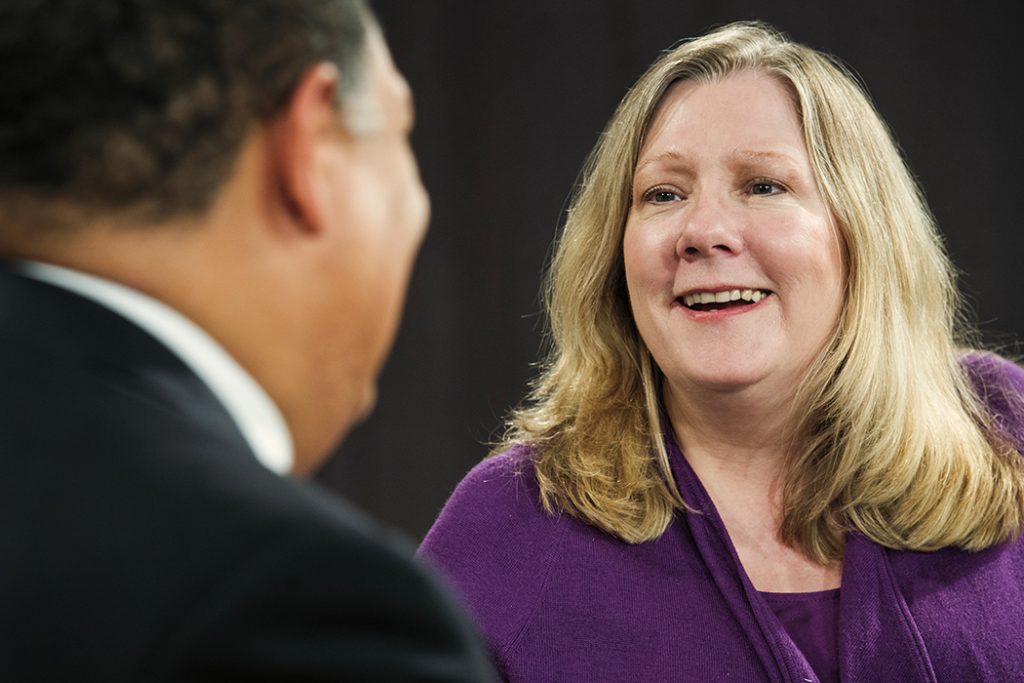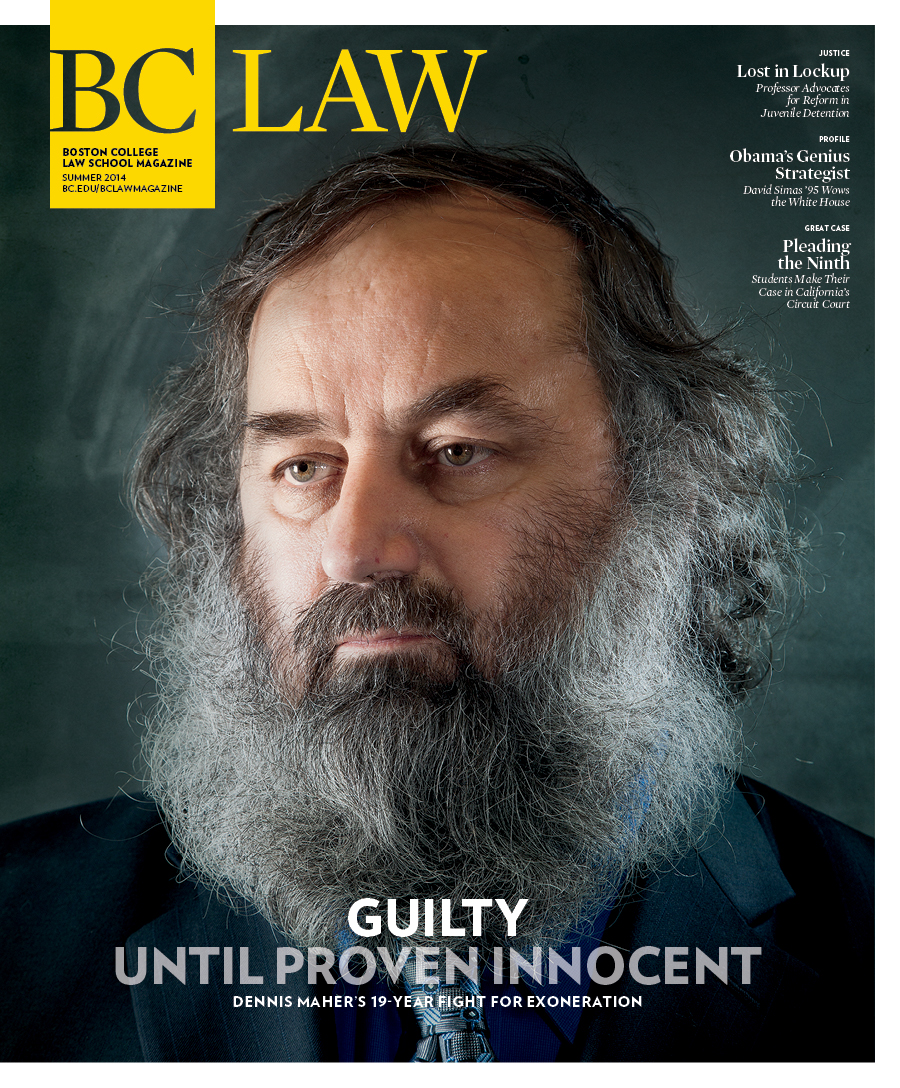Dean Vincent Rougeau recently sat down with Darald and Juliet Libby Professor Cathleen Kaveny to discuss issues involving law, religion, and morality in a democracy that embraces diversity. Kaveny, a noted legal scholar and moral theologian, is author of Law’s Virtues: Fostering Autonomy and Solidarity in American Society. She recently joined the BC faculty and is the first person to hold a joint appointment at the Law School and the School of Theology.
CK: As a scholar, I have always been interested in the intersection of law, morality, and religion. So I’m very concerned with the set of values that animate our pluralist liberal democracy and trying to bring the wisdom of the Roman Catholic tradition to the discussions about some of the questions we face. One question is whether law can function as a teacher, or do we have to have a value neutral liberalism that takes no stand on key moral issues?
Looking at statutory law and case law, I saw that there is room for moral teaching in the function of law. Americans are most proud of the statutes that inculcate a vision of how we should live our lives together, respecting each other’s equal dignity, and our right and duty to live a life that expresses our values. I saw this in the Civil Rights Act, the Family and Medical Leave Act, as well as the Americans with Disabilities Act.
VR: How do we deal with pluralism? I think that’s really where there’s so much contention right now in the public sphere. There are many different ways of thinking about what religion teaches us to do. I don’t want to say people are rejecting religion, but [they may be] rejecting organized religion as a way of centering their lives. How do we create an environment in which we can have a conversation about the ways religion informs what we think about the law and why that’s really important in this context of pluralism?
CK: One way of approaching this is by recognizing that I’m in a community where other people don’t think about these things like I do. They’re good people. We’re all trying to contribute to the common well-being. So I try to think of what do I owe you? How can I put myself in your shoes with your views and really see how things look from your point of view? The Golden Rule, at least in terms of thinking about an ideological or religious framework, goes a long way. If I were in your shoes and a member of a religious minority or somebody who was not religious, what would I want? I think trying to encourage that kind of empathetic concern for other people in our community is a good way to go.
The other thing, and I guess I learned this from the common law, is that maybe we’re better off if we don’t start with the great big foundational questions: Who created the cosmos? What’s the order of the universe? We can often find more agreement on matters on the local level and then build out from there. How can we think about dealing with the range of religions in our schools? How can we make sure everybody feels included? How can we make sure that nobody feels disenfranchised when they look at the array of holiday decorations?
Law has to take into account where people are. It can always point to something beyond that, it can say we can move forward, but I always think of it almost like physical exercise. You don’t go from being a couch potato to being a marathoner in two weeks; otherwise you’re going to end up [stranded] on Heartbreak Hill.
VR: There’s something I struggle with when listening to our political rhetoric. We the voters create the government by voting for it; we make a choice. Yet there’s strong rhetoric in the political dialogue today that refers to government as the “Other”—this thing that threatens to take us over—when we are the people who enable it. There seems to be a real disconnect in American public discourse around the notion of a participatory democracy that creates a government for the governed, but then [views] the government as an entity that somehow has power over us.
CK: That’s exactly right, that tension is really there. There is a strong libertarian strand in the country that says the best government is the smallest government; if you can get rid of the government, that’s pretty good. There’s another strand that says we really need to have an ordered community and people need to serve it by participating in public life. Especially as the community gets more pluralistic, we need to work on strengthening the second strand so that people see themselves as connected to the government, as responsible to it and who hold it responsible, not simply every four years in terms of who they vote for president, but also who they vote for on the local level.
I think the Catholic tradition can help highlight the mutual relationship between the individual good and the common good. No one is an island. We work together for fulfilling ourselves and fulfilling ourselves in service to others.
To view the full interview with Dean Rougeau and Professor Kaveny, go bc.edu/lawmagvideos.



